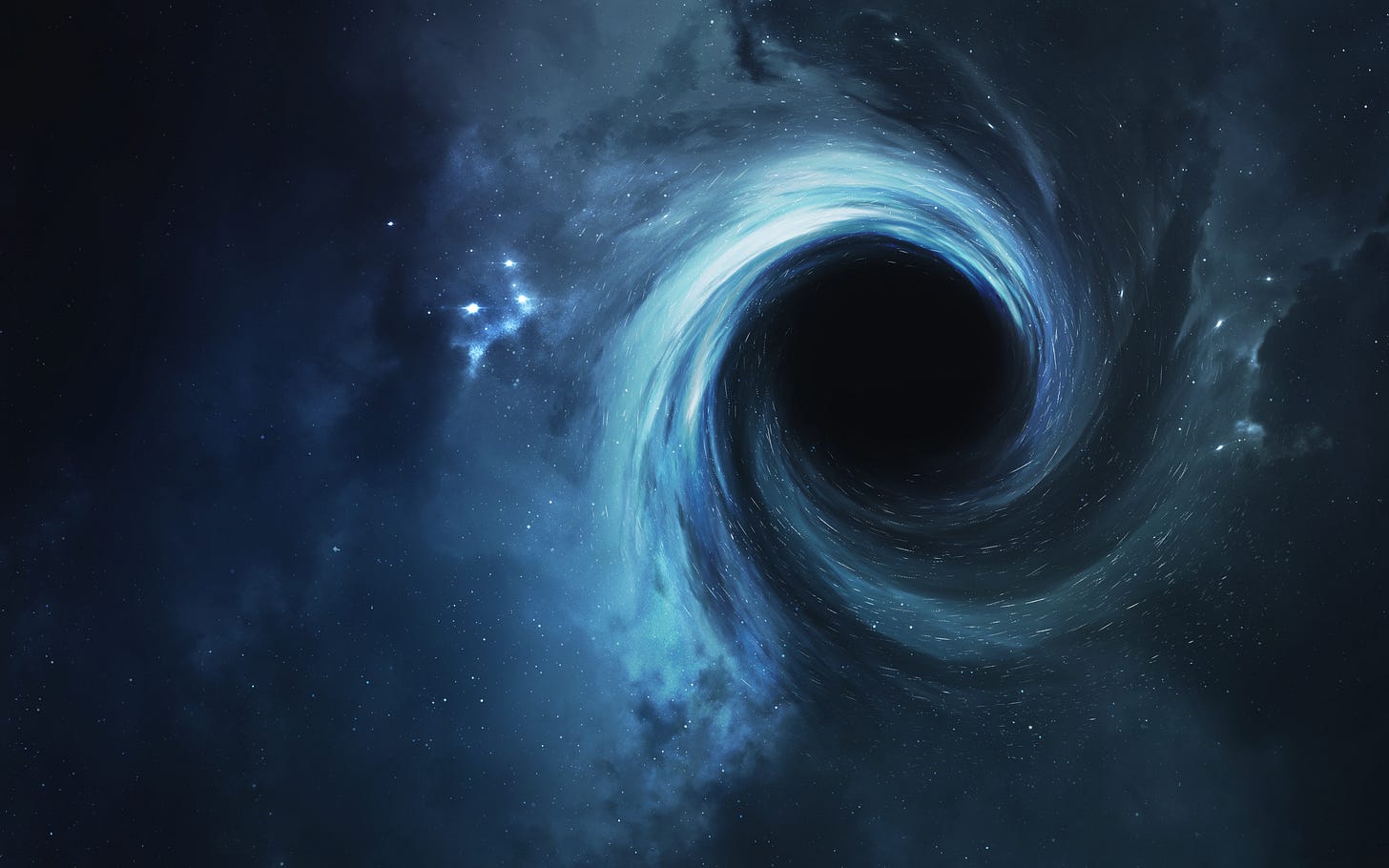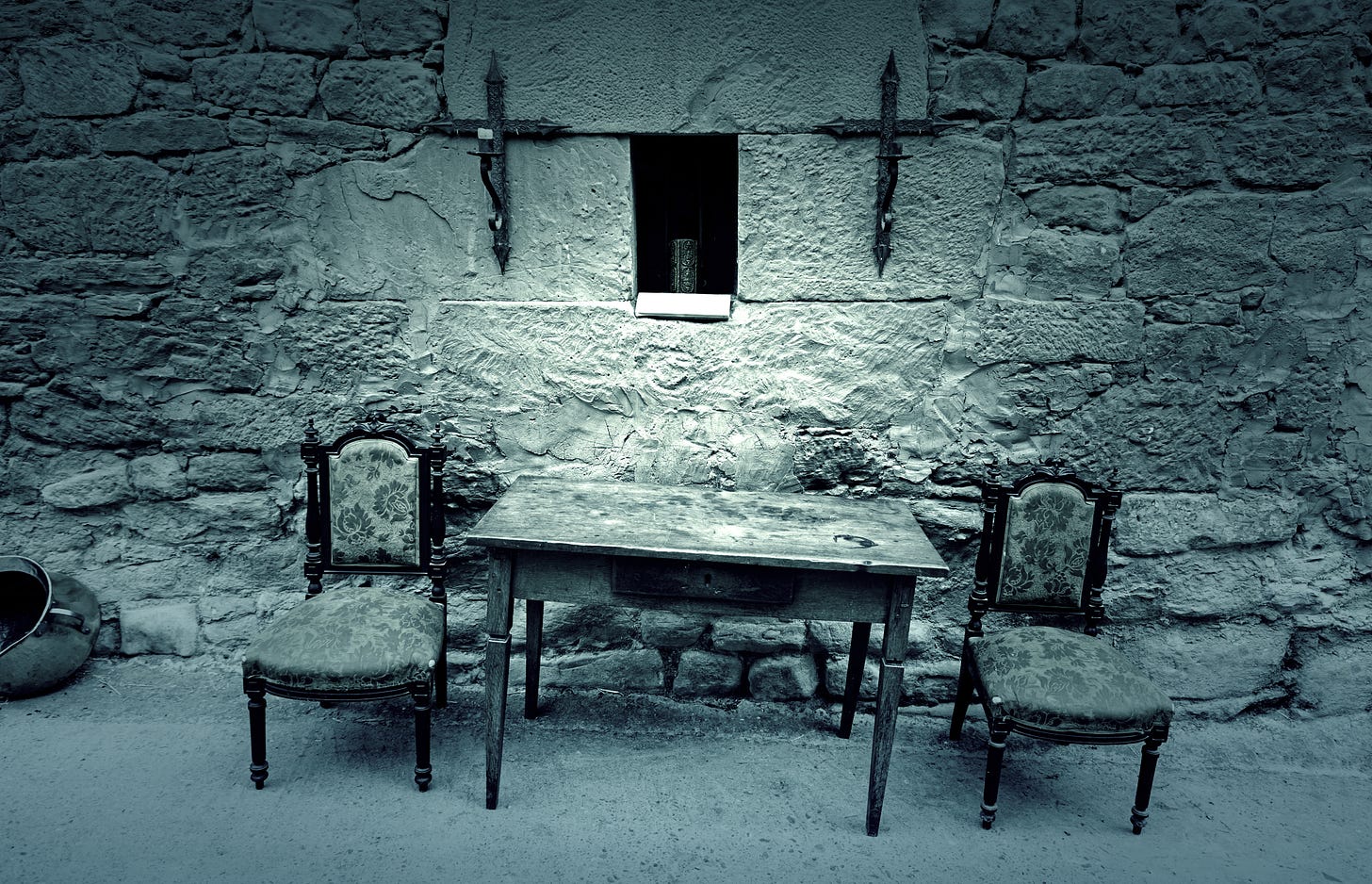E-Pluribus | June 22, 2021
Book burning has begun, when is a black hole more than a black hole, and reminders from Alexis de Tocqueville.
A round up of the latest and best writing and musings on the rise of illiberalism in the public discourse:
Abigail Shrier: The Books Are Already Burning
The silent majority has been silent long enough as far as Abigail Shrier is concerned. Shrier submits that it’s time for those concerned with the illiberal direction of today’s public discourse to stop sheltering behind those willing to take the hits publicly and start taking their own risks for the good of all.
The silent supporters have each performed the same risk-benefit calculation and arrived at the same conclusion: Speaking up isn’t worth it. It could cost a job, reputation, peace and friends — it requires the assumption of risk and a willingness to sacrifice.
And it is easy to justify our silence. We tell ourselves that we are protecting our families by remaining quiet and in the short-term, and we may be. But we are also handing our children over to a culture in which freedom of conscience and expression are drowned out. We are teaching our children that truth shouldn’t be our primary concern — or at least, that truth is negotiable or subordinate to being agreeable. They are learning that it is more important to remain acceptable to the powerful than to be truly free.
Whether or not most people admit it, what keeps them from speaking up in the face of what they know is wrong is fear. Fear not primarily of unemployment, though that is a pressing concern, but fear of ostracism. This deep and ancient fear is behind our desperate reach for innocence and safety when we virtue signal. By contrast, we stand exposed when we speak unpopular truth. Within your tribe, there will be people who pull away from you, and if you think well of them — and sadly, even if you don’t — this causes pain.
Read it all here.
Heather Mac Donald: Down a Black Hole
The interval between parody and reality is shrinking. Heather Mac Donald writes about the (apparent) connection between cosmological phenomenon and… yes, race.
[…] “Black Holes: Race and the Cosmos” asks the question, “Is there a connection between the cosmos and the idea of racial blackness?” Anyone familiar with academia’s racial monomania knows the answer: of course there is! Though “conventional wisdom,” according to the catalog description of “Black Holes: Race and the Cosmos,” holds that the “‘black’ in black holes has nothing to do with race,” astronomy professor Nicholas Battaglia and comparative literature professor Parisa Vaziri know better.
Battaglia and Vaziri puncture the “conventional wisdom” by drawing on theorists such as Emory University English professor Michelle Wright. Wright’s book, The Physics of Blackness: Beyond the Middle Passage Epistemology, invokes “Newton’s laws of motion and gravity” and “theoretical particle physics” to “subvert racist assumptions about Blackness.” The Cornell course also studies music by Sun Ra and Outkast to “conjure blackness through cosmological themes.”
Read the whole thing.
Eric Clifford Graf: Tocqueville and Us
“Nobody expects to become the Spanish Inquisition. But we all do.” Monty Python and Alexis de Tocqueville work comfortably if incongruously side by side in this Eric Clifford Graf piece at Quillette. Graf writes that Tocqueville’s classic and timeless outsider’s look at America reminds citizen’s there is much to guard against, including ourselves, if we wish to preserve our hard-won and unique democratic republic.
Why does ego-based factionalism occur and why is it so particular to America? Tocqueville skips over its ultimate origins because, unlike today, a classically educated liberal knew that humanity’s urge to divide into destructive opponents needed no explanation. Plato, Thucydides, Apuleius, Augustine, Dante, Montaigne, and Cervantes had shown how hatred, resentment, and cruelty are always at the ready to dash a civilization’s greatest achievements. When Romantics like Burke, Tocqueville, and Poe pause to ponder the sublimity of nature, this is what they want us to understand.
But Tocqueville does clarify why America is a specific engine for the extremes of narcissistic collectivism. For starters, Democracy in America previews the main aspects of Steele’s argument (a lesson partly transmitted to Tocqueville by my own state’s national hero, American general Sam Houston). Race-based slavery in the context of the greatest explosion of wealth in history created a psychosocial excuse whereby the racial minority most excluded from that prosperity rejected its values. White people’s zealous acceptance of responsibility for this inequity set in motion poor solutions, the secondary enslavements of moral extortion and dependency. Lastly, confidence in the angelic status of elected rulers paved a seductive road of entitlements for the descendants of slaves.
[…]
Three unrelenting psychosocial factors underwrite ego-based factionalism in the United States: (1) people always form factions; (2) the most basic mode of faction is shared egotism; (3) the equality wrought by democracy and free markets leaves many without ways of distinguishing themselves from others, which inclines them to project their ego as a faction. As Mark Twain later put it, in a hyper-democracy, our hollow selves take to factions like fashions.
Around Twitter
The Foundation for Individual Rights in Education (FIRE) has released a recording from a workshop the University of Oklahoma where professors discuss how to censor and report their students:
Thomas Chatterton Williams on Lin-Manuel Miranda’s apparent “White hegemony” faux pas.
Christopher Rufo notes that the Washington Post’s story on him was deeply flawed:
Are classroom really encouraging an open exchange of ideas? Conservative students are not convinced:
Here’s one student’s thoughts via the Foundation Against Intolerance & Racism:













